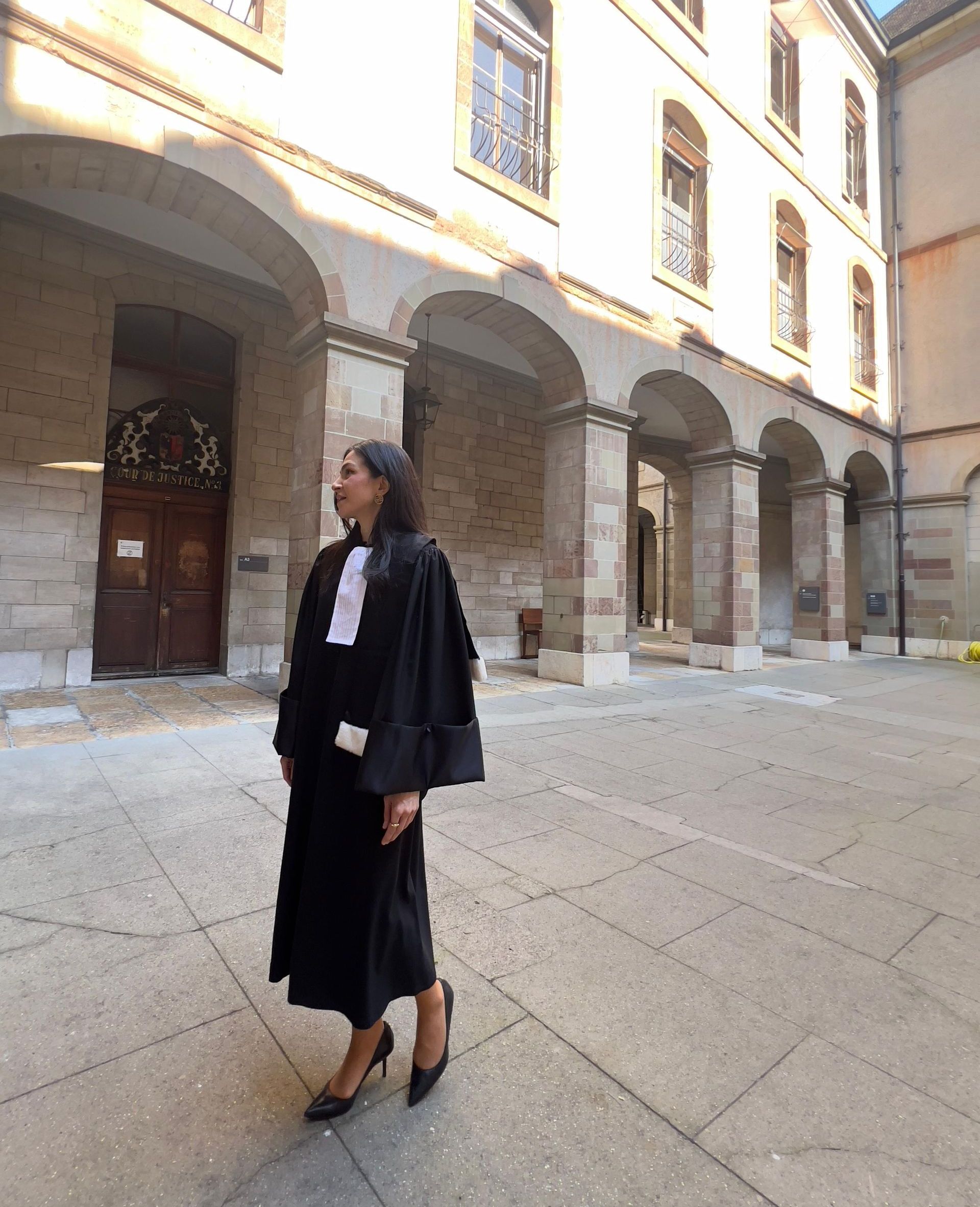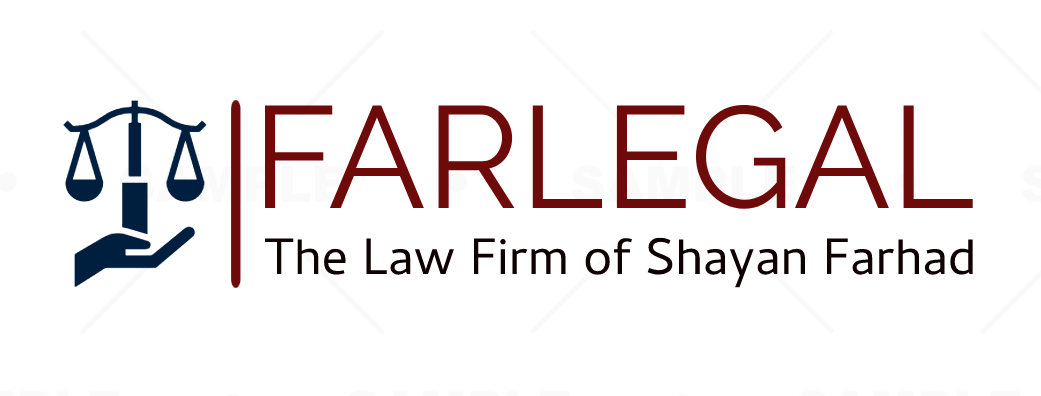
Avocate pénaliste à Genève - Acquittement dans une affaire de fausses accusations d'infractions sexuelles Une victoire judiciaire contre une condamnation précipitée du Ministère public genevois Dans une affaire récente, j’ai obtenu l’acquittement complet d’un client faussement accusé d’infractions d’ordre sexuel à Genève. Une victoire judiciaire, certes. Mais surtout, un exemple flagrant de dérive procédurale, et de ce qui arrive lorsque les procureurs condamnent sans instruire, violant les droits fondamentaux des justiciables. Ordonnance pénale à Genève: une condamnation sans instruction Mon client avait été condamné par ordonnance pénale rendue par le Ministère public genevois. Aucun interrogatoire par un procureur. Aucun débat contradictoire. La décision reposait uniquement sur les procès-verbaux de la police — qui, ironie du sort, concluait qu’il n’y avait pas suffisamment d’éléments pour retenir une infraction pénale. Cette manière de procéder viole directement la maxime d’instruction prévue à l’article 6 du Code de procédure pénale suisse (CPP), qui impose aux autorités pénales de rechercher la vérité à charge et à décharge. Le parquet genevois n’a pas respecté cette mission. Le résultat: une condamnation hâtive, en contradiction avec les principes fondamentaux du droit pénal suisse. C’est à ce moment-là que mon client m’a confié sa défense. Opposition à l’ordonnance pénale – première étape pour rétablir un procès équitable à Genève Nous avons immédiatement formé opposition à cette ordonnance pénale, comme le prévoit la loi. Ce recours a permis ce que mon client n’avait jamais eu: un véritable procès pénal, public et contradictoire, devant le Tribunal de police à Genève. Lors de l’audience, j’ai mis en lumière: Les contradictions manifestes dans les déclarations de la plaignante. Une instruction lacunaire et partiale menée par le Ministère public genevois. Au terme du procès, le Tribunal a prononcé l’acquittement, et a condamné l’État de Genève à indemniser mon client. Pourquoi cette affaire intéresse toute personne confrontée à une procédure pénale à Genève Ce dossier n’est pas un cas isolé. À Genève, les ordonnances pénales du Ministère public dans les dossiers d'infractions sexuelles - en particulier dans les cas de " parole contre parole " - tombent souvent sans réelle instruction, en violation des droits de la défense. C’est une mécanique bureaucratique où la présomption d’innocence est souvent la première victime. Ces pratiques mettent en péril les fondements mêmes de notre système. Heureusement, la procédure d’opposition permet de stopper ces décisions arbitraires – à condition d’avoir une défense rigoureuse, stratégique et combative. Confiez à notre cabinet d'avocat à Genève votre défense en matière pénale Si vous, ou un proche, êtes accusé à tort, ou si vous faites l'objet d'une ordonnance pénale du Ministère public, contactez immédiatement une avocate spécialisée en droit pénal à Genève. Vous aurez besoin : d’un regard stratégique, d’une défense rigoureuse et combative, d’une avocate capable de confronter le Ministère public sur le terrain du droit, et surtout, de remettre la vérité au cœur de la procédure. C’est ce que j’ai fait pour ce client. C’est ce que je fais pour chacun de mes clients. Et c’est ce que je ferai pour vous. --- Shayan Farhad , Avocate au Barreau de Genève et Solicitor des Cours supérieures de l'Angleterre et du Pays de Galles

Vous ne pensiez sans doute jamais chercher avocat en droit pénal à Genève . Et pourtant, vous y voilà. Que vous soyez expatrié, chef d’entreprise, personnalité publique ou simplement au mauvais endroit au mauvais moment, faire face à une accusation pénale en Suisse peut être un véritable choc. Du jour au lendemain, votre liberté, votre carrière, votre réputation et votre avenir sont en jeu. En tant que cabinet d’avocat de droit pénal à Genève, nous sommes spécialisés dans la défense pénale, tant pour une clientèle locale qu’internationale, confrontée à des accusations infondées en Suisse. En tant qu’avocate spécialisée en droit pénal à Genève, Me Shayan Farhad intervient dès le premier jour pour protéger vos droits avec rigueur, stratégie et discrétion. Pourquoi choisir FARLEGAL – Votre étude d'avocat spécialisée en droit pénal à Genève Me Shayan Farhad, avocate pénaliste à Genève, est doublement qualifiée en Suisse et en Angleterre. Ancienne procureure et ancienne avocate en contentieux pour les plus grands cabinets d'avocats américains, elle maîtrise les deux côtés de la barre et sait démanteler une accusation de l’intérieur. Lorsque votre vie est en jeu, l’expérience fait la différence. Dans le cadre d’un dossier de fausses accusations, la justice pénale suisse peut sembler tout sauf juste. C’est pourquoi FARLEGAL concentre exclusivement son activité sur la défense pénale à Genève et en Suisse. Chez FARLEGAL, nous ne faisons pas que défendre. Nous obtenons des résultats. Des délis aux affaires pénales graves, y compris dans un récemment procès pour meurtre médiatisé, où notre client a été entièrement acquitté , notre cabinet est reconnu lorsque l’enjeu est vital. Nous avons un but clair: défendre les innocents et faire triompher la vérité. Notre méthode: - La règle des 24 heures: pourquoi les premières 24 heures après un contact policier sont déterminantes. - Notre approche face aux fausses accusations en Suisse: stratégie de défense, enquêtes discrètes, et une défense acharnée. - Pourquoi l’innocence ne suffit pas: comprendre la procédure pénale suisse et pourquoi le silence et un avocat sont vos meilleures armes. Vous faites l'objet de fausses accusations pénales en Suisse? Contactez-nous immédiatement Que vous ayez reçu une convocation de la police, que votre nom apparaisse dans une enquête, ou que vous pressentiez simplement que des poursuites se préparent: n’attendez pas. Contactez Me Shayan Farhad, fondatrice de FARLEGAL, avocate spécialisée en droit pénal à Genève. Réservez une consultation | Écrivez-nous

You probably never expected to be searching for criminal defense lawyer in Geneva . But here you are. Whether you're an expatriate, a company director, a public figure, or simply someone caught in the wrong place at the wrong time, facing a criminal accusation in Switzerland can be overwhelming. Suddenly, your freedom, your career, your reputation and your future are all at risk. At Geneva criminal law firm FARLEGAL, we specialize in defending clients - local and international alike - against false accusations in Switzerland. As an English-speaking criminal defense attorney in Geneva, Shayan Farhad works proactively and tirelessly to protect your rights from day one. Why Clients Trust FARLEGAL | Criminal Lawyer in Geneva Who Fight for You Geneva criminal lawyer Shayan Farhad is a dual-qualified attorney in Switzerland and in England. As a former federal prosecutor and former litigator at top-tier US law firms, she knows both sides of the courtroom and how to dismantle a case from the inside. When your life is on the line, experience matters. When you’re wrongly accused, the Swiss criminal justice system can feel anything but fair. At FARLEGAL, we don’t just defend. We win. From misdemeanors to serious crimes cases, including a recent high-profile murder trial where our client was fully acquitted , our firm is trusted when the stakes are life-changing. We have a track record of defending the innocent and making the truth prevail. Here’s how we work: - The 24-Hour Rule: Why your first 24 hours after police contact are critical. - How We Fight False Accusations in Switzerland: Strategic defense, discreet investigations, and relentless advocacy. - Why Innocence is Not Enough: Understanding Swiss criminal procedure—and why silence and legal counsel are your best defense. Facing Wrongful Criminal Charges in Switzerland? Speak to our Geneva Criminal Defense Attorney Today Whether you've received a police summons, your name appears in an investigation, or you simply suspect that something is coming: do not wait. Contact Shayan Farhad, founder of FARLEGAL, recognized as one of the leading criminal defense attorneys in Geneva, Switzerland. Book a consultation | Email us

Chez FARLEGAL, nous avons l'immense satisfaction d’annoncer l’acquittement total de notre client, faussement accusé de meurtre par le Ministère public genevois. Au total, notre client avait passé 422 jours en détention provisoire. À l’issue d’un procès à haute intensité et médiatique, le Tribunal correctionnel de Genève a reconnu que notre client est innocent de tous les soupçons qui pesaient sur lui. Il a ordonné sa libération immédiate et a condamné l'État de Genève à lui verser un dédommagement. Une défense construite pierre par pierre Dès le premier jour, nous avons identifié les failles d’une enquête à charge, conduite au mépris de la présomption d’innocence. Nous avons démonté l’accusation, pièce par pièce, dans un combat judiciaire acharné. L’enjeu: la vie d’un homme. La vérité. Notre méthode: rigueur, stratégie et maîtrise des faits. Notre engagement: total. Quand l'État dérive, nous rétablissons l’ordre Chez FARLEGAL, nous intervenons là où l’erreur judiciaire menace. Nous défendons les innocents avec force et intégrité. Ce verdict est une victoire pour notre client, mais aussi un rappel: la défense pénale est un pilier de l’État de droit. Elle ne cède pas. Elle ne transige pas avec les faits. Vous êtes accusé(e) à tort? Contactez-nous. FARLEGAL est un cabinet d'avocat à Genève spécialisé en droit pénal, fondé pour répondre aux situations les plus graves: accusations injustes, procès complexes, enjeux humains majeurs. Notre spécialité: faire triompher la vérité. Consultation confidentielle en ligne ou par email pour les cas les plus urgents.

At FARLEGAL, we are proud to announce the complete acquittal of our client, who was falsely accused of murder by the Geneva Public Prosecutor’s Office. Our client spent 422 days in pretrial detention. After a high-intensity, high-profile trial, the Geneva Criminal Court found our client innocent of all allegations. The court ordered his immediate release and condemned the State of Geneva to pay financial compensation for the injustice he endured. A Defense Built Brick by Brick From day one, Geneva criminal defense attorney Shayan Farhad identified the structural flaws of a biased investigation conducted in disregard of the presumption of innocence. She dismantled the prosecution’s case, piece by piece, in a relentless legal battle. The stakes: one man’s life. The goal: the truth. Our method: precision, strategy, and mastery of the facts. Our commitment: unwavering. When the State Overreaches, We Restore Order At FARLEGAL, we intervene where wrongful prosecutions threaten justice. We defend the innocent with strength and integrity. This verdict is a victory for our client, but it also serves as a powerful reminder: criminal defense is a cornerstone of the rule of law. It doesn’t yield. It doesn’t compromise the facts. Falsely Accused? Contact Us. FARLEGAL is a Geneva criminal law firm dedicated to criminal defense that was founded and led by Shayan Farhad. We were built to take on the most serious matters: wrongful accusations, complex trials, and life-altering stakes. Our specialty: making the truth prevail. Urgent cases welcomed – Confidential consultations available online or by email.

Il avait été accusé du pire. Et détenu 422 jours pour un crime qu’il n’avait pas commis. Voici le récit de ce que fut, pour lui — et pour nous — un combat pour la vérité, la justice, et la liberté. 422 jours. C’est le temps que mon client a passé en détention pour un crime qu’il n’a pas commis. Le plus grave de tous: meurtre. Hier soir, 20 mai 2025, les juges du Tribunal correctionnel de Genève ont fait résonner, dans le silence de la salle d’audience, la vérité que je défendais depuis le premier jour: mon client est innocent. Acquittement total. Par la grande porte. Et, avec ce verdict: sa libération immédiate et la condamnation de l’État de Genève à lui verser un dédommagement. Ce matin, je l’ai rencontré dans un café, dehors, en liberté, pour la première fois. Pas dans la froideur des parloirs de Champ-Dollon, où je lui rendais visite depuis des mois. Il était là, libre. Mais brisé. Meurtri. Ce procès, c’est l’histoire d’une instruction pénale menée exclusivement à charge, par un procureur qui a condamné avant même d’enquêter. Qui a écarté des preuves à décharge. Qui a bâti son dossier sur des hypothèses, une fiction, plutôt que de rechercher la vérité – sa mission la plus fondamentale. L’une de mes dernières paroles aux juges, dans ma plaidoirie, fut celle-ci: « Aujourd’hui, vous jugez un homme. Mais vous jugez aussi une méthode. Vous jugez ce qu’il advient de notre justice quand elle renonce à sa propre rigueur. Quand elle échange la présomption d’innocence contre la commodité d’un coupable désigné. Quand elle sacrifie l’enquête à l’hypothèse. » En tant qu’avocate pénaliste, je me bats pour des instants comme celui d’hier. Chaque dossier est un long combat. Mené dans l’arène. Seule. Souvent contre la défaite, car l’adversaire est redoutable: l’État, avec toute sa force, tout son pouvoir, et, parfois, toute sa dérive, lorsque ses représentants trahissent leur serment – comme ce fut le cas dans cette instruction. Mais pas cette fois. Hier soir, la justice a été restaurée. Un homme a retrouvé sa dignité, son honneur, sa liberté. Et moi, j’ai retrouvé ce souffle qui me rappelle pourquoi je tiens debout dans cette arène. Dossier après dossier. « Dans une carrière, ce genre de victoire n’arrive qu’une ou deux fois. Savourez ce moment. » m’a dit un ténor du barreau genevois. Je savoure. Et je redouble de force pour continuer à défendre celles et ceux que l’on accuse à tort. Shayan Farhad

Le Silence Avant Les Mots – Réflexions d’Une Avocate en Défense Pénale Il y a un moment, dans chaque procès, où le temps ralentit. L’air est chargé d’anticipation, les murs du tribunal se referment, témoins silencieux du poids de la justice. Je me lève de ma chaise, lissant le tissu de ma robe, sentant le sol solide sous mes pieds. Le seul son que j’entends est celui de ma propre respiration lorsque je m’avance. Le silence est absolu. Je prends place au centre, face au juge. Le poids de trois années d’injustice pèse sur ma cliente, assise devant moi. Elle a vécu dans l’ombre de fausses accusations, enfermée dans un récit qui n’a jamais été le sien. Aujourd’hui, je parle pour elle. Je porte sa vérité dans ma voix, dans mes mots, dans le rythme de mon discours. La salle d’audience est immobile lorsque je commence. Une plaidoirie finale est bien plus qu’un raisonnement juridique. C’est un appel à la justice. C’est le moment où la loi cesse d’être une abstraction et devient quelque chose de vivant, d’humain. Je ne me contente pas d’énoncer des faits et des articles de loi – je me bats pour la dignité de ma cliente, pour ce qu’on lui a volé. Chaque mot est pesé, chaque pause est voulue, chaque silence rappelle ce qui est en jeu. Alors que je prononce mes derniers mots, je regarde ma cliente. Des larmes bordent ses yeux. À cet instant, je sais qu’elle se sent entendue. Elle n’est plus seule dans ce combat. Et quoi qu’il arrive ensuite, elle sait que quelqu’un s’est levé pour elle, s’est battu pour elle, a refusé qu’elle soit réduite à une fausse accusation. C’est dans des journées comme celle-ci que je me rappelle pourquoi j’ai choisi cette voie. Ce ne sont pas les seules victoires, ni les batailles juridiques gagnées. C’est le devoir sacré de se tenir devant la cour et de faire résonner la vérité dans le silence. C’est savoir que mes mots, ma voix, peuvent porter le fardeau d’un autre et le transformer en quelque chose de puissant. Pour mes confrères avocats en défense pénale, c’est cela que nous défendons : pas seulement des affaires, mais des vies. Et à ceux qui se retrouvent faussement accusés, sachez ceci : vous n’êtes pas seuls. Le tribunal peut être froid, le système cassé et impitoyable, mais certains d’entre nous tiennent bon, inébranlables, dans le silence avant les mots, prêts à se battre pour vous. Car la justice n’est pas seulement un principe. C’est une voix. Et aujourd’hui, elle a été entendue. Shayan Farhad



